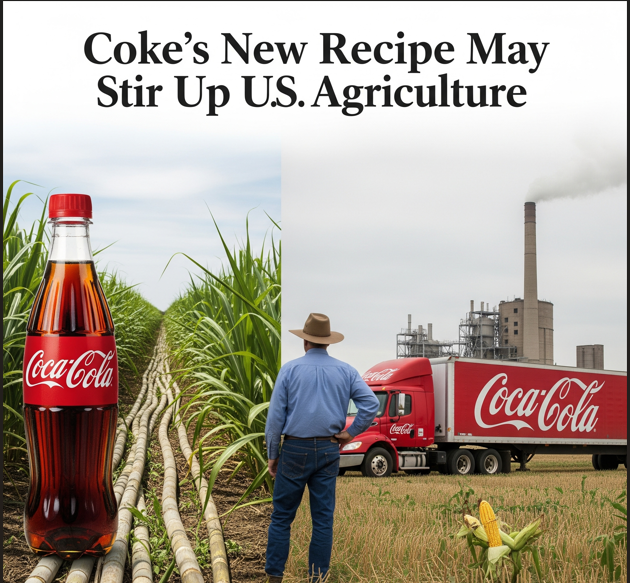
Coca‑Cola is considering a historic change switching from high-fructose corn syrup to cane sugar in its beverages. This shift isn’t just a response to consumer health trends. it’s being actively pushed by the US President, who’s advocating for cleaner, more natural ingredients in major food products.
But behind the sweetness lies serious economic implications. Corn syrup, a byproduct of US-grown corn, has long been a staple in American food manufacturing. A large-scale shift to cane sugar could reduce demand for corn, putting pressure on Midwest corn farmers. Meanwhile, sugarcane mostly imported could see a surge in demand, shaking up trade balances and impacting global prices.
Agricultural lobbyists are already reacting. Some hail the change as a win for health-conscious consumers, while others warn of rising food costs and international dependence. It’s a classic case of policy, public health, and profits colliding.
Investors are watching agribusiness stocks, especially those tied to corn futures and sugar refiners. If Coke moves, others may follow and that could reshape the entire packaged food supply chain in the US.